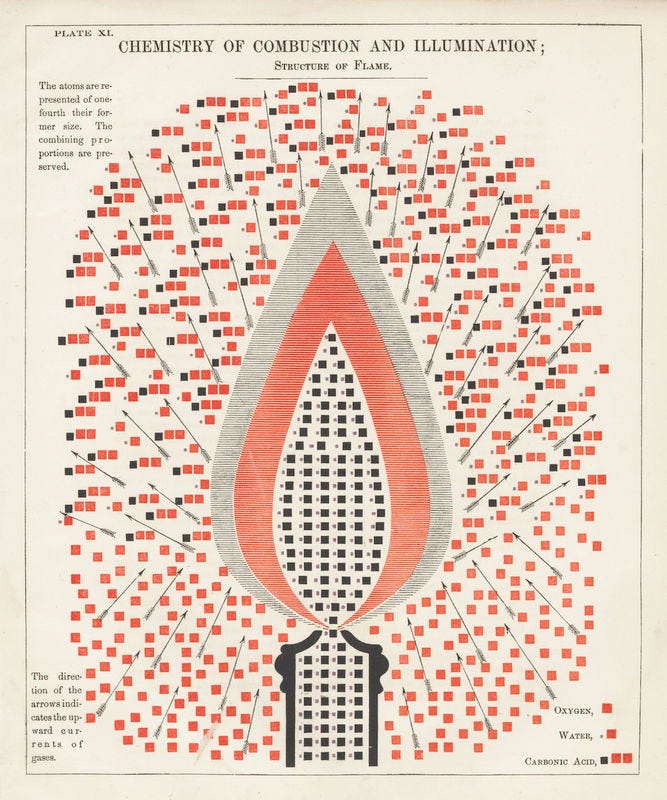From Rage to Power, Part 3: Stop Reading, Start Organizing
How to Annoy Politicians Into Changing Policy
This is Part 3 of a series based on my summer 2025 AI Safety, Ethics & Society course project. In Part 1, you identified your specific AI frustration. In Part 2, we mapped where that frustration connects to industry vulnerabilities. Now: turning that knowledge into action.
I. The Math of Change
You’re staring at this article thinking “but what can I actually DO?”
York, Pennsylvania has the answer.
On November 5th, after five years of debate, York’s city council voted down a $4.5 million surveillance camera network—140 cameras that would have watched every major street. The project had police backing, corporate support, and seemed inevitable.
But residents kept showing up. They wrote letters. They organized protests. They spoke at every single meeting, even when officials stopped listening.
The council voted 3-4 against it.
Commissioner Michael Muldrow, who championed the cameras, was so frustrated he announced he’d take his surveillance pitch to other cities instead. Good. That’s what winning looks like—making bad policy so annoying to implement that they give up and go elsewhere.
One email feels pointless. A hundred emails force a staff briefing. A thousand emails become a political risk that threatens re-election. York proved this math works. Daniel Motaung proved it suing Meta over content moderation trauma. You might be email number 247. Someone has to be.
The quality that makes organizing work is persistence. And persistence means annoying people who’d rather maintain the status quo. Get comfortable with that.
Before we get to your specific actions: yesterday I attended an ALLAI Consulting webinar where they launched their ALLAI Consulting Data Center Toolkit. If data centers are your fight, watch their full presentation and read their toolkit—it’s the most actionable resource I’ve seen on this issue. I’ve woven some of their insights below, but they deserve more than my highlights.

II. Take Action Now
Here’s what the AI industry doesn’t want you to realize: there’s no wrong frustration. Every angle of AI harm intersects with others, creating natural coalitions.
Mad about job losses AND surveillance? Worker exploitation intersects with privacy—same companies, same practices, same disregard for human dignity. Environmental damage AND bias? Data centers drain resources from the same communities facing algorithmic discrimination. Content moderation trauma AND creative theft? Both stem from treating human labor as disposable.
These overlaps are your power. Different frustrations, same targets, stronger coalition.
A. Your 15-Minute Actions
Pick ONE action. Complete it before reading another article about AI problems.
If You’re Mad About Worker Exploitation
Email your representative about the Algorithmic Accountability Act (S. 2164):
I’m your constituent. Algorithms deny people jobs, housing, and freedom based on biased data. Support S. 2164 to require transparency in automated decision-making. People deserve to know when algorithms judge them and how to appeal.
[Your name and zip code]
Find your Senator or Representative.
More effective than email: Fax is harder to ignore—physical paper demands attention. Use FaxZero (free for up to 5 faxes/day, 3 pages each) or GotFreeFax. Phone calls have serious impact—call their local office (not DC), keep it brief. In-person visits are most powerful, especially if you bring 2-3 people from your local group.
If You’re Mad About Surveillance
Contact your city council about facial recognition:
I’m a constituent concerned about surveillance expansion in our city. York, Pennsylvania just rejected a $4.5 million camera network after five years of citizen opposition. I request a moratorium on facial recognition technology until we have community oversight policies with enforcement power.
[Your name and address]
More effective than email: Fax is harder to ignore—physical paper demands attention. Use FaxZero or GotFreeFax. Phone calls have serious impact—call their local office, keep it brief. In-person visits to city council meetings are most powerful, especially if you bring your three people. Show up repeatedly. That’s how York won.
If You’re Mad About Environmental Impact
The Sierra Club just forced Kansas utilities to protect residential customers from data center energy costs. Communities in Amsterdam, Ireland, and Denmark blocked data centers. These fights are winnable.
If your community is facing a data center proposal, developers will claim “closed-loop cooling,” “underutilized capacity,” and “recycled water.” All misleading:
“Underutilized capacity” is your community’s growth buffer—not waste for one company to claim
“Closed-loop cooling” still requires evaporating millions of gallons daily via open-loop heat exchange
Current ratepayers fund grid infrastructure TODAY based on data center promises LATER—if projects fail, you pay for infrastructure you don’t need
Forward the ALLAI Consulting Data Center Toolkit to your Planning Commission now, before proposals surface. When one does, use the toolkit’s technical questions in your public comments.
Template for local representatives:
Data centers are draining our water and spiking our electric bills. Developers claim “underutilized capacity” and “closed-loop cooling,” but this is misleading. Current ratepayers are funding grid infrastructure based on future promises—if projects fail or delay, we’re stuck with costs for infrastructure we don’t need.
[If there’s a specific local proposal, add: “The proposed [facility name] would...”]
I’m requesting:
Environmental impact reviews before Planning Commission approval
Financial guarantees protecting ratepayers if projects fail
Renewable energy requirements, not fossil fuels
Separation of “health and safety” grid costs from “investment” buildouts in rate documents
The Kansas Corporation Commission just established these protections on November 6, 2025. Our community deserves the same.
[Your name]
More effective than email: Fax your local representatives and Planning Commission members—physical paper demands attention. Phone calls to Planning Commission offices—ask when data center proposals are on the agenda. In-person testimony at Planning Commission meetings is most powerful. Bring your toolkit questions. Show up with others. Create that public record.
Global Templates That Work
EU residents: Reference GDPR Article 22 on automated decision-making rights
UK residents: Cite the Online Safety Act requirements
Australians: Point to the Privacy Act review recommendations
Anywhere: Reference UN AI ethics recommendations
B. Find Your Local People
Before you fire off that angry email or storm that council meeting alone, you need backup. Not metaphorical support—actual humans who will show up with you.
Your city councilmember doesn’t have a PR team filtering messages. They hear you directly. But here’s what most people miss: by the time an issue reaches city council, you’re often late.
Data centers, surveillance systems, and major developments start at the Planning Commission—quiet rezoning requests that rarely make headlines. This is where you win. Get on your Planning Commission’s mailing list now. Search “[your city] planning commission” and sign up for agenda notifications.
Same for your state’s Public Utilities Commission if you’re fighting energy or water issues. Rate increases and infrastructure approvals happen there, usually before the public knows a project exists.
Search “[your city] + surveillance” or “[your city] + tech accountability.” Check Meetup, library bulletin boards, local Facebook groups. Ask at DSA meetings, ACLU chapters, environmental groups if anyone’s working on tech issues.
Nothing exists? Create it. Post in local groups: “Anyone else worried about [specific local AI issue]? Want to meet for coffee this Thursday?” Put up physical fliers at libraries and coffee shops. Start a Signal group.
You need three people who show up consistently. That’s it. Not a movement, not an organization—three humans who care about the same problem you do.
Critical: Your voice must be on the public record. Social media posts, petition sites, and Facebook likes don’t count in official proceedings. You need written submissions (emails, letters) or oral testimony at meetings. This creates the legal record that matters in future decisions and litigation.
C. Connect to National Organizations
This isn’t just American rage. Delivery drivers in India are fighting algorithmic wage theft that mirrors DoorDash exploitation. European unions negotiated the world’s first comprehensive AI workplace agreement—use their template. Brazilian courts banned facial recognition in public spaces—cite their reasoning. Chinese workers leaked evidence of AI training exploitation that affects global models.
When Amsterdam residents blocked Meta’s data center over environmental concerns, communities in Ireland, Denmark, and Singapore used their arguments to block similar projects. What worked? Residents showed up to Planning Commission meetings before projects made headlines. They submitted written comments exposing developer claims about “recycled water” and “underutilized capacity.” They created a public record the city couldn’t ignore.
Your local fight provides ammunition globally.
These organizations have wins, not just websites:
Workers & Jobs
Tech Workers Coalition: Decentralized chapters that helped kill Google’s Project Maven
Data Labelers Association: The people training AI for $2/hour are organizing globally
Foxglove: British legal group successfully suing Meta for moderator PTSD
Privacy & Surveillance
EFF: They don’t just complain—they sue and win
Fight for the Future: Their campaigns killed SOPA/PIPA
STOP: NYC-focused but their strategies work anywhere
Bias & Discrimination
Algorithmic Justice League: Got Amazon to pause selling facial recognition to police
Data & Society: Research that activists actually use
AI Now Institute: Ex-Google employees who quit to fight from outside
Environmental Impact
Sierra Club: Just won Kansas rate protection from data center costs (November 6, 2025)
ALLAI Consulting: Created the ALLAI Consulting Data Center Toolkit with expert-level questions to challenge data center proposals
Local environmental justice groups fighting data center water usage everywhere

III. The Long Game
A. The Truth About Failure (And Why We Keep Going)
The facial recognition ban movement has stalled. Five cities banned it in 2021. None in 2022. New Orleans reversed their ban in July 2022. Virginia reversed restrictions the same year.
Why? People got tired. Industry lobbying intensified. The organizers who started the movement burned out or moved on to other fights.
But York just proved surveillance fights can still be won—if you show up consistently for five years. The Sierra Club just proved you can protect consumers from corporate costs—if you persist through the boring regulatory meetings. The Kenyans suing Meta have been at it since 2022, taking breaks, tag-teaming court appearances, maintaining lives outside the lawsuit.
Every successful movement has these failures. The suffragettes lost for 72 years before women could vote. Labor organizers were literally murdered before we won weekends. Civil rights activists faced dogs and firehoses for a decade before lunch counters integrated.
They kept going anyway. So will we.
B. Sustaining Your Fight
Set boundaries now or burn out later. Digital Rights Watch in Australia tells volunteers: maximum 5 hours per week, no emails after 8pm, mandatory week off every two months. They’ve been fighting for a decade because they don’t burn people out.
Pick your sustainable level:
Monthly: One council meeting, one letter to officials
Weekly: Coordinate with your three people, research one thing
Daily: Five minutes on a specific campaign, then stop
Rotate responsibilities in your group. This month, you write emails; next month, someone else does while you handle meeting attendance. Document small wins—every new person at a meeting, every shifted vote, every media mention. These sustain you through losses.
Find your anger buddies. The Data & Society researchers who exposed Instagram’s harm to teens had weekly rage sessions where they vented, strategized, and reminded each other why it mattered.
IV. Your Move
Before you close this tab:
Take one action from Section II.A. Set a timer for 15 minutes. Send that email or make that call.
Find one local person who cares. Post in a local group today. Schedule coffee for this week.
Show up once next month. Mark your calendar now for a council meeting, organization webinar, or protest.
That anger you articulated in Part 1? The vulnerabilities you mapped in Part 2? This is where they become powerful.
You won’t see immediate results. Your representative’s office might send a form letter. The first council meeting might ignore you completely. But the staffer tallies your contact. When fifty people write about the same issue, someone pays attention. When constituents show up repeatedly, things change.
You’ll know you’re making progress when officials recognize your name. When organizations ask for your input. When your local group has inside jokes about city council dynamics.
Change annoys people who profit from the status quo.
Good.
Keep annoying them.


